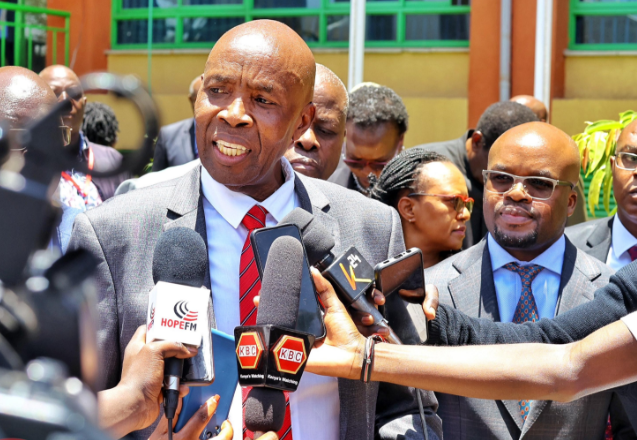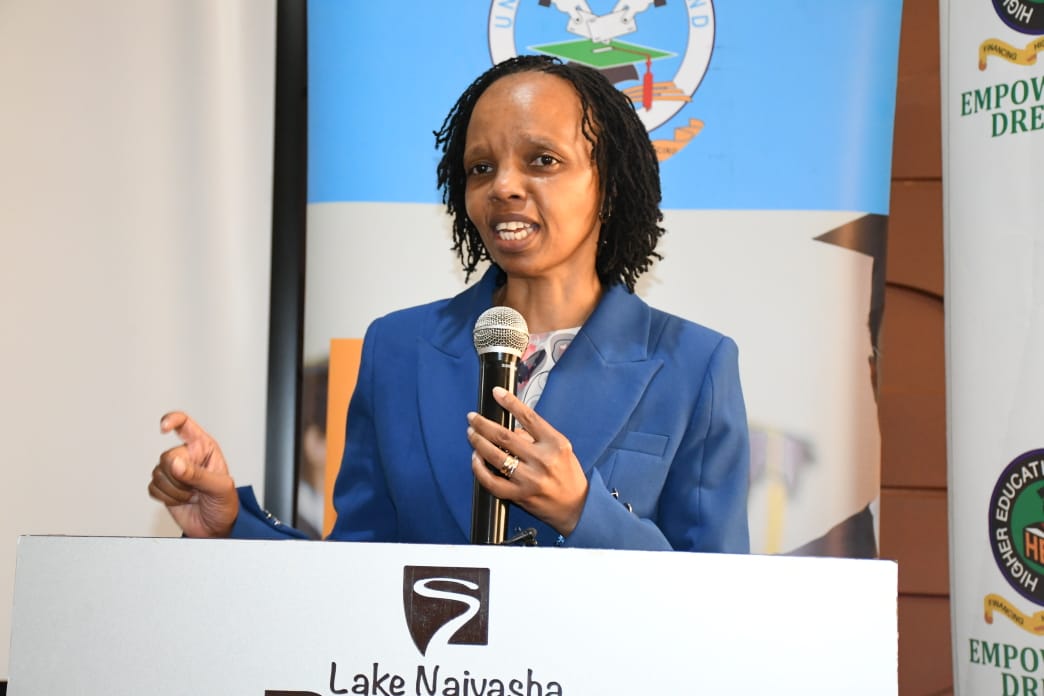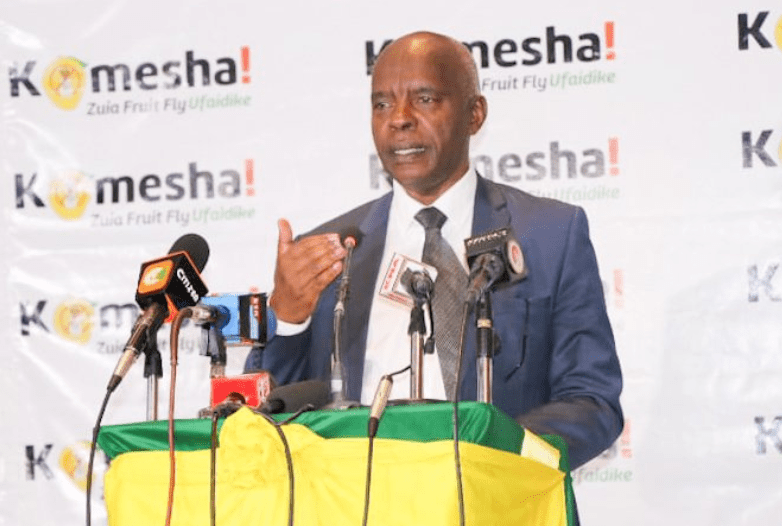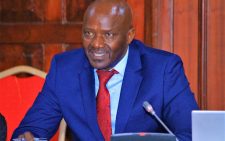Far-reaching changes await KCSE candidates

The Ministry of Education yesterday announced far-reaching changes in how this year’s national examinations will be administered, even as it stated that the new Kenya Certificate of Secondary Education (KCSE) grading system will be applied immediately.
A record 3.5 million candidates are set to sit various national examinations — KPSEA, KCPE and KCSE — between October 30 and November 24.
Education Cabinet Secretary Ezekiel Machogu said the new grading structure for KCSE will see only two mandatory subjects required for computing a candidates mean grade. The first will be mathematics and the second will be English, Kiswahili or Kenyan Sign Language, whichever the candidate has a higher score in.
The reform measures are expected to increase the number of students qualifying for university admission, diploma courses and Technical and Vocational Education and Training (TVET) training at certificate and artisan levels.
“We have today met here with all the key stakeholders to discuss the new grading structure that will be implemented in the 2023 KCSE exam,” said the CS.
He spoke at the New Mitihani House in Nairobi during the stakeholders’ engagement on the new grading system for KCSE and launch of the 2023 national exam and assessment season.
In the past, a candidate had to be examined on five mandatory subjects across three cluster groups namely; mathematics, English, Kiswahili, two sciences and one humanity.
Under the new system that will be applied this year, the only two mandatory subjects will be Mathematics and one language. In addition, the Kenya National Examinations Council (Knec) will consider any other five best-performed subjects.
Machogu urged all personnel who will take part in this year’s national exams cycle to discharge their duties with utmost professionalism in line with the set guidelines.
He also urged all those who will be engaged in the management of exams and assessments to uphold integrity and remain vigilant to deter any form of exam malpractices.
“My ministry will ensure that appropriate action will be taken against officers who contravene the rules and regulations put in place. The government will not spare any person found to be abetting cheating in examinations,” Machogu warned, even as he revealed that his ministry will collaborate with others to ensure the exams are administered successfully.
Key strategies
KNEC Chief Executive Officer David Njengere announced that one of the key strategies to be implemented with effect from this year is collection of KCSE examination papers twice a day from the containers where they will be under lock and key.
He said the council had mapped all exam centers to the nearest distribution point so that every school can pick examination papers from the nearest container.
“The mapping of examination centres/schools will mean that some centers will pick examinations from different but neighbouring sub counties and in some cases will be picking from different counties,” he said.
This year, the council will use 576 distribution centres or containers to store Kenya Primary School Education Assessment (KPSEA) and KCPE examination papers and another separate 576 containers for KCSE.
In the race to make this system work efficiently, the council has bought an additional 82 containers to serve 13 newly created sub-counties, which did not have containers installed. Another 67 containers will be installed due after mapping of examination centres countrywide.
“To enhance security of the examination processes, no unauthorised persons will be allowed in any examination centre other than the centre managers, supervisors and invigilators,” Njengere said.
Centre managers will be required to prepare a list of all support staff on duty and this must be done before the start of the examination period.
To ensure that all managers, supervisors, invigilators and other supporting officers are properly briefed, the examination council will be undertaking briefing and sensitisation across the country between October 2 and 6.
Among the issues they will be briefed about are the innovations and security measures put in place to safeguard the exams, what roles teachers and other officers involved in the management of the exams will play, KNEC rules and regulations on exam malpractices and any other information that may need to be communicated.
Knec has entrusted Deputy County Commissioners and Sub County Directors of Education to ensure integrity in administration and management of the examinations and in particular, prudent use of resources such as fuel. The officials will also be involved in identifying, vetting and deploying officers to be involved in the exam processes. These include centre managers, supervisors, invigilators, security agents and other field officers.
They are also to support in receiving, dispatch and return of exam materials through the established routes as well as monitoring how the exams are administered to ensure adherence to KNEC rules and regulations.
According to Njengere, the officials will also be tasked to ensure security of examination materials at the containers and during transportation to and from schools as well as reporting cases of exam malpractice.
Security officers
Njengere said security officers will be under instructions to ensure that no teachers other than those officially cleared to work in exam centres will be allowed to interact with candidates during the exam periods. Others allowed are supervisor(s), invigilator(s), laboratory technicians and science teachers during practicals as well as authorised support staff to prepare meals for candidates and supervision personnel.
“No secretaries, bursars or teachers should be allowed in the school compound during examinations,” he said.
In instances where some centres allow the teacher on duty to be present, he said they should only be allowed after all the materials have been picked and taken back to the container.
“Security officers will be required to ensure that examinations materials are kept in the exam room. They should not be taken into the centre manager’s office or the supervisors room at any given time,” he warned. “Officers should not manage national examinations while under the influence of alcohol and drugs.”
Similarly, the CEO stated that the council was aware that some challenges will be experienced, like adverse weather conditions that can impede successful administration of the exams. This includes the above normal rainfall expected during the examination period, after the weatherman predicted a possible El Nino between October and December.











